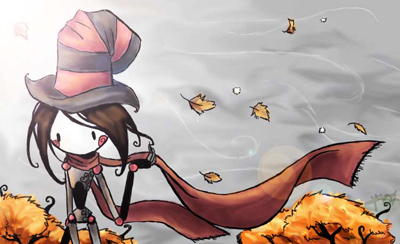All Nonfiction
- Bullying
- Books
- Academic
- Author Interviews
- Celebrity interviews
- College Articles
- College Essays
- Educator of the Year
- Heroes
- Interviews
- Memoir
- Personal Experience
- Sports
- Travel & Culture
All Opinions
- Bullying
- Current Events / Politics
- Discrimination
- Drugs / Alcohol / Smoking
- Entertainment / Celebrities
- Environment
- Love / Relationships
- Movies / Music / TV
- Pop Culture / Trends
- School / College
- Social Issues / Civics
- Spirituality / Religion
- Sports / Hobbies
All Hot Topics
- Bullying
- Community Service
- Environment
- Health
- Letters to the Editor
- Pride & Prejudice
- What Matters
- Back
Summer Guide
- Program Links
- Program Reviews
- Back
College Guide
- College Links
- College Reviews
- College Essays
- College Articles
- Back
Civil Disobedience
“If the machine of government is of such a nature that it requires you to be the agent of injustice to another, then, I say, break the law”- Henry David Thoreau.
While an organized government is mandatory for the order and political guidance of a society, (beats the hell out of anarchy), when a citizen’s ability to call himself or others in the course of civil rights “free” is compromised, then civil disobedience is deemed compulsory. Civil disobedience is the reaction to unjust law in the direct and rebellious movements of an individual or regime taking independent action outside what written law constitutes. History’s lenses have seen all famous civil rights leaders, such as Henry David Thoreau, Martin Luther King Jr., and Malcolm X as the epitomes of civil disobedience and civil justice, willingly prepared to face the consequences of incensed castigation by government authority, in order to protect civil rights.
“One has a moral responsibility to disobey unjust laws”- Martin Luther King Jr. In the context of this response, Reverend King had assessed in Birmingham Jail that while citizens should follow civil law when civil laws actually respect “civil”, or fair humane rights, as opposed to unjust laws, such as those enacting racial discrimination, must not be obeyed. Any type of oppression demands direct action, and as Martin Luther King Jr. quantified with the morally and ethnically unjust nature of racism. Disobedient justice can often be appropriately seen as “whatever is necessary” tactics against an unpopular sovereignty. As Thoreau had protested by refusal to pay war-supportive taxes and later on refusal to pay bail, Martin Luther King Jr. assessed several arrests in peaceful civil right campaigns, and Malcolm X participated in vigilante justice that asserted self-defense and equality enforcement, all of which called attention to unlawful actions by their governments.
If vigilante justice is taking the law into one’s own hands, than what is the most effective way in which civil disobedience can be prevented? “They take too much time and a man’s life will be gone,”- Henry David Thoreau. This citation from Thoreau entails that passivity of passing laws is ineffectively slow and cannot bring about change quickly enough. As Martin Luther King Jr. stated, “freedom is never voluntarily given by the oppressor, it must be demanded by the oppressed.” Thus, active force is a necessary trait in civil disobedient tactics. As civil disobedience is notionally a case of justifying the immorality of an unfair government, then the counter-active disobedient actions should reflect moral defenses and honorable resistance. Martin Luther King Jr. taking cue from Mohandas Gandhi’s own pacifist opposition to corrupt British forces, advocated nonviolent means to oppose racial discrimination, as opposed to Malcolm X’s early extremist reciprocal “own medicine” tactic.
In the complex world of politics and government, one mandate can be said that, “It is not always the same thing to be a good man and a good citizen”- Aristotle.
Injustices demanding civil disobedience include those discriminating against minorities or violating humane rights; crimes that can versatility range from hate crimes of the Holocaust, to racism in the civil rights movement, to LGBT discrimination. Civil disobedience, especially that of non-violent and logical persuasion, can be fitting for correcting corrupt and unjust government.

Similar Articles
JOIN THE DISCUSSION
This article has 0 comments.
